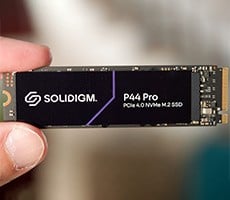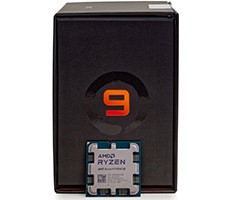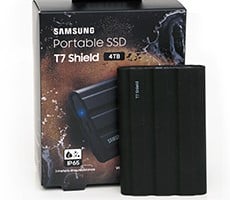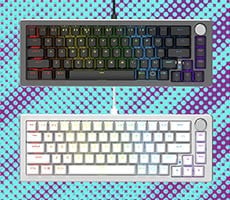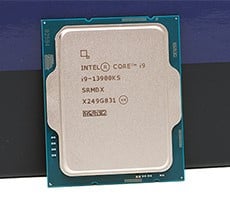AMD Ryzen 9 7950X3D Review: No Compromise Gaming And Creator Performance
When the Windows installation was complete, we installed all of the drivers necessary for our components, disabled Auto-Updating and Windows Defender, and installed all of our benchmarking software. When that process was done, we performed a disk clean-up, cleared any temp and prefetch data, processed idle tasks, and optimized all of the SSDs using Windows' built-in utility. Finally, we enabled Windows Focus Assist to minimize any potential interruptions and let the systems reach an idle state before invoking any tests.
HotHardware's Test Systems:
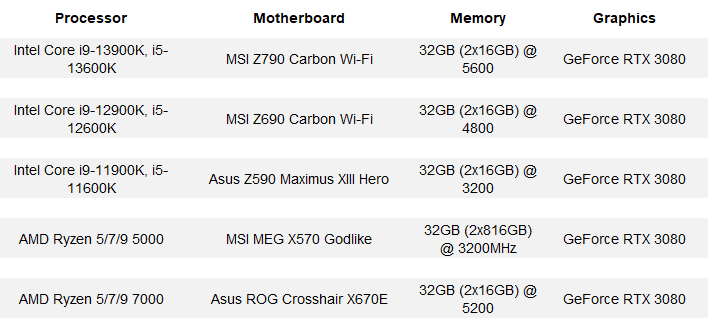
AIDA64 Memory Bandwidth, Memory Latency & Cache Latency
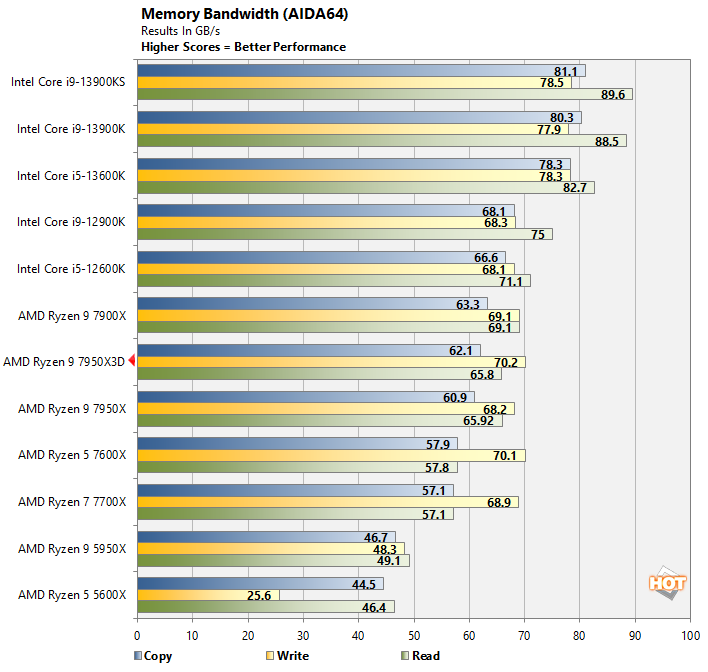
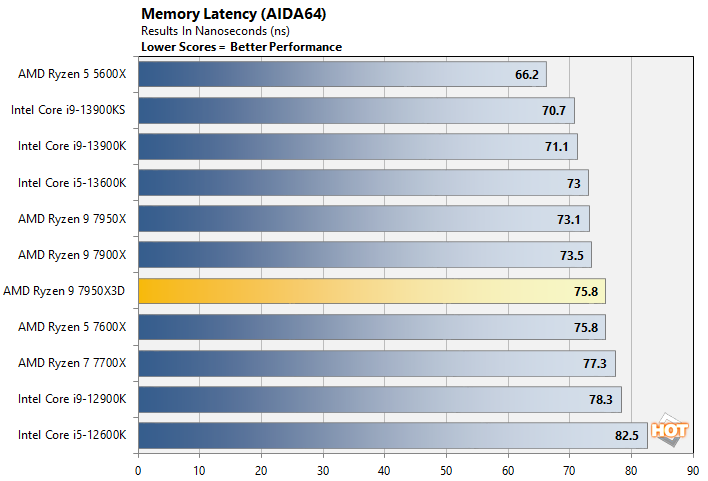
While DDR5's higher clocks results in more memory bandwidth versus previous-gen offerings equipped with DDR4, the higher CAS latency of current DDR5 memory kits also results in increased memory latency. And the Ryzen 9 7950X3D actually ends up with somewhat higher latency than the standard Ryzen 9 7950X.
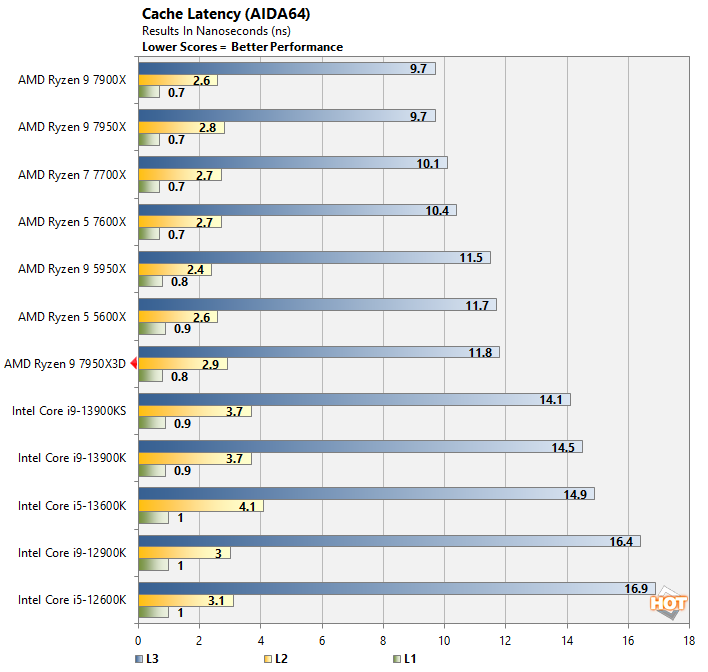
Geekbench v5.4.1 CPU Benchmark
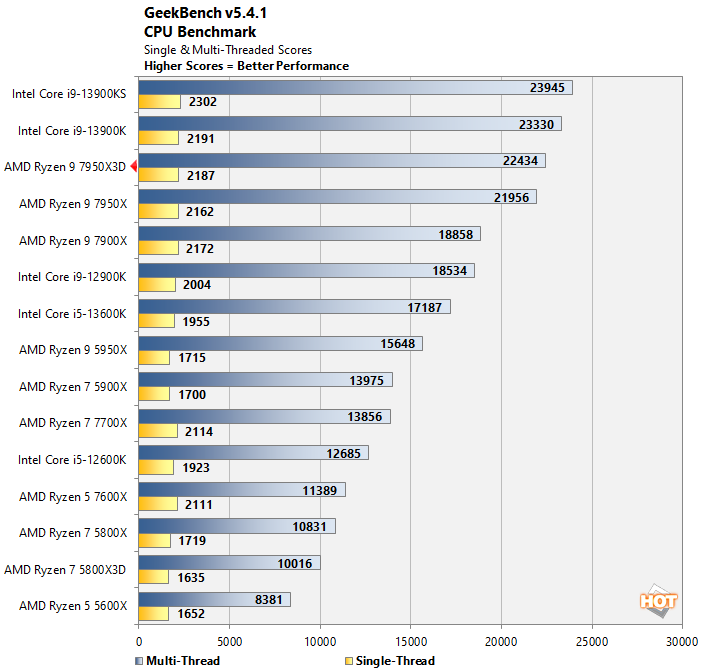
In our Geekbench tests, the new Ryzen 9 7950X3D is actually able to overtake the standard Ryzen 9 7950X by the slimmest of margins, with better single and multi-threaded scores, and drops in just behind the Core i9-19300K.
UL PCMark 10 Benchmarks
Next, up we have some full-system testing with PCMark. We're reporting all test results from the PCMark 10 benchmark suite, including the Essentials, Productivity, Digital Content Creation and and total PCMark score. The Essentials test covers workloads like web browsing, video conferencing and app start-up times, while Productivity tests everyday office apps from spreadsheets to word processing. Finally, the Digital Content Creation test evaluates performance of a machine with respect to photo and video editing, as well as rendering and visualization.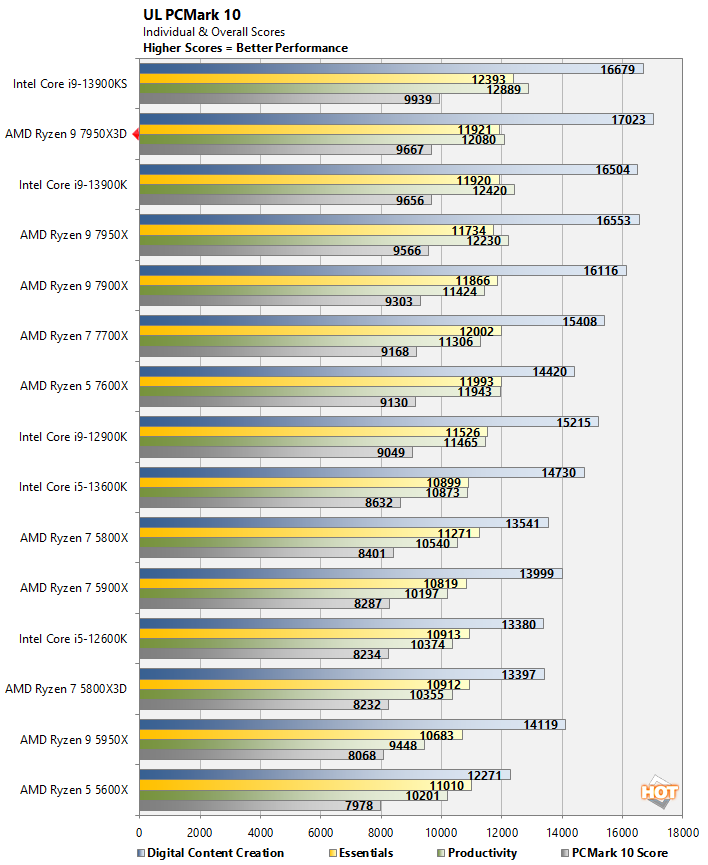
PCMark 10's mixed workloads also had the new Ryzen 9 7950X3D offering somewhat higher overall performance than the standard Ryzen 9 7950X, but it couldn't quite jump into the overall lead. AMD's newest flagship outran the Core i9-13900K, but it couldn't quite catch the hot-clocked Core i9-13900KS special edition chip.
Browser & Web App Benchmarks: Jetstream 2 And Speedometer 2
These benchmarks measure performance of an array of browser-based technologies used on modern, rich web applications. Scores in these benchmark are an indicator of the performance users would see when browsing the web and running advanced web apps. All of the systems were tested using the latest version of Microsoft's Edge browser, with default browser settings, on a clean, fully-updated install of Windows 11.
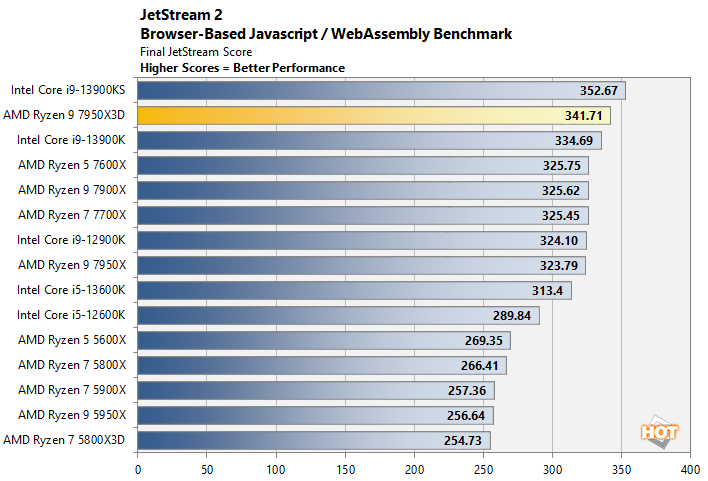
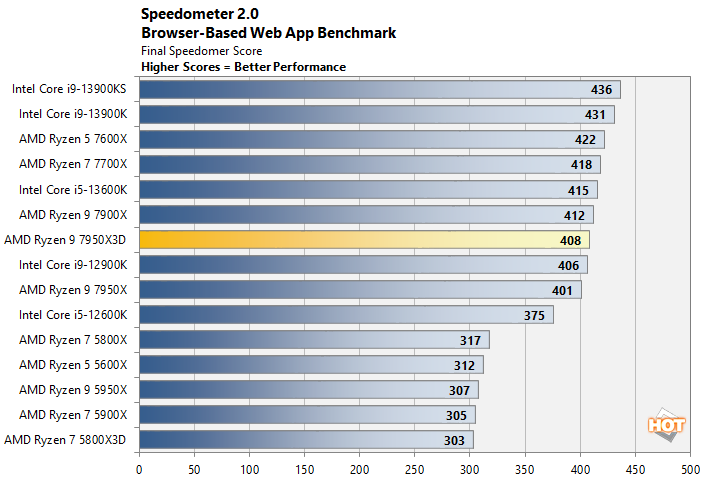
7-Zip Data Decompression Tests
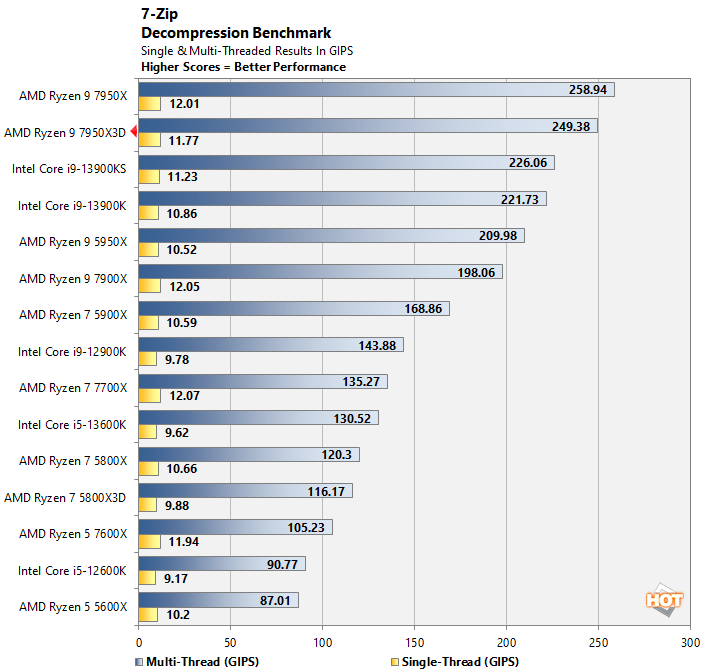
Although it technically offers a similar configuration, albeit with more cache, the new Ryzen 9 7950X3D slots in just behind its standard 7950X counterpart in the 7-Zip decompression tests. This is likely due to the 3D V-Cache enabled CCD having to hover at lower clocks under a long, sustained multi-threaded workload that taxes every available thread.


